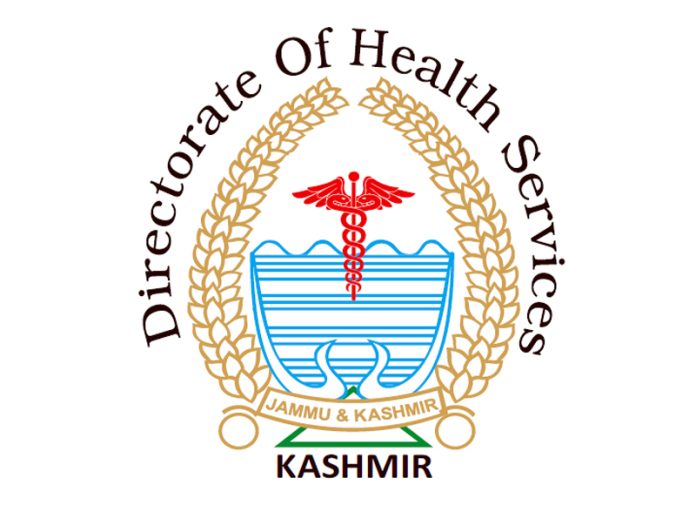Health Deptt alert amid inclement weather; issues directives
Irfan Tramboo
SRINAGAR, Apr 27: Amid the current weather conditions prevailing in Kashmir and with more expected in the coming days, the Health Department issued comprehensive directives today to healthcare service providers, outlining urgent measures to address potential risks, particularly in flood-prone areas.
As per directives from the Directorate of Health Services, Kashmir (DHSK), all hospitals in flood-prone areas have been instructed to activate their emergency plans. This includes shifting major medical equipment to higher floors and stocking additional medicines, consumables, supplies, fuel, and mess requirements to ensure functionality even in case of floods.
The directive also entails activating Disaster Management Cells at the district/block level and in all hospitals to cater to any kind of medical emergency that may arise.
“Initiate measures required to take control of outbreaks, epidemics, including enhanced surveillance and management to be coordinated by the District IDSP, and strengthen the Primary Health Centres to improve the capacity of surveillance and control of epidemics,” the directives state.
Furthermore, the establishment of an adequate number of district-level mobile units with trained personnel, testing facilities, communication systems, and emergency treatment facilities has also been directed.
DHSK has also emphasized the availability of survival/emergency kits during disaster situations, including additional fuel, and mess arrangements.
“Arrange Rubber Boats, with requisition of Live Jackets from SDRF Department to provide hassle-free medical services during floods.”
Officials have been instructed to stock sufficient medicines and life-saving drugs at the district/sub-district/PHC and CHC level hospitals and to chalk out an emergency plan “in case Territory Care Hospitals are submerged by the adjacent Districts viz Pulwama, Ganderbal, Srinagar, and Budgam,” ensuring the availability of secondary power sources at all levels of Health institutions.
In this regard, all Chief Medical Officers, Medical Superintendents, and Block Medical Officers across Kashmir have been directed to ensure the implementation of the directives promptly.
The concerned health officers in the districts have also been directed to track the locations of pregnant mothers through ANC registrations “and those due for childbirth for transport to safer and adequately equipped comprehensive emergency obstetric care units with neonatal facilities.”
“Create teams of specialists at district level, who can be deployed at short notices in the affected areas and will include additional surgical supplies and mobility support.”
The directives stress obtaining and transmitting information on natural calamities to the higher central sites and disinfecting water sources to prevent the spread of waterborne diseases.
In case of landslides in hilly areas, DHSK stated, an action plan needs to be framed to tackle the medical emergency well in time, stressing on mapping of volunteers for blood donation and the steps for vaccination against Typhoid, Hepatitis A, Cholera, etc., and management of epidemics, if required.
Officials have also been asked to conduct a situational assessment and review the status of response mechanisms in known vulnerable pockets and ensure the dispatch of both personnel and medical supplies to areas requiring disaster relief measures.
“Oversee the arrangement of ambulance services. In the absence of transport facilities, adequate mapping plans to the nearest health units and local transport facilities need to be networked, including the requirements of water transport.”


